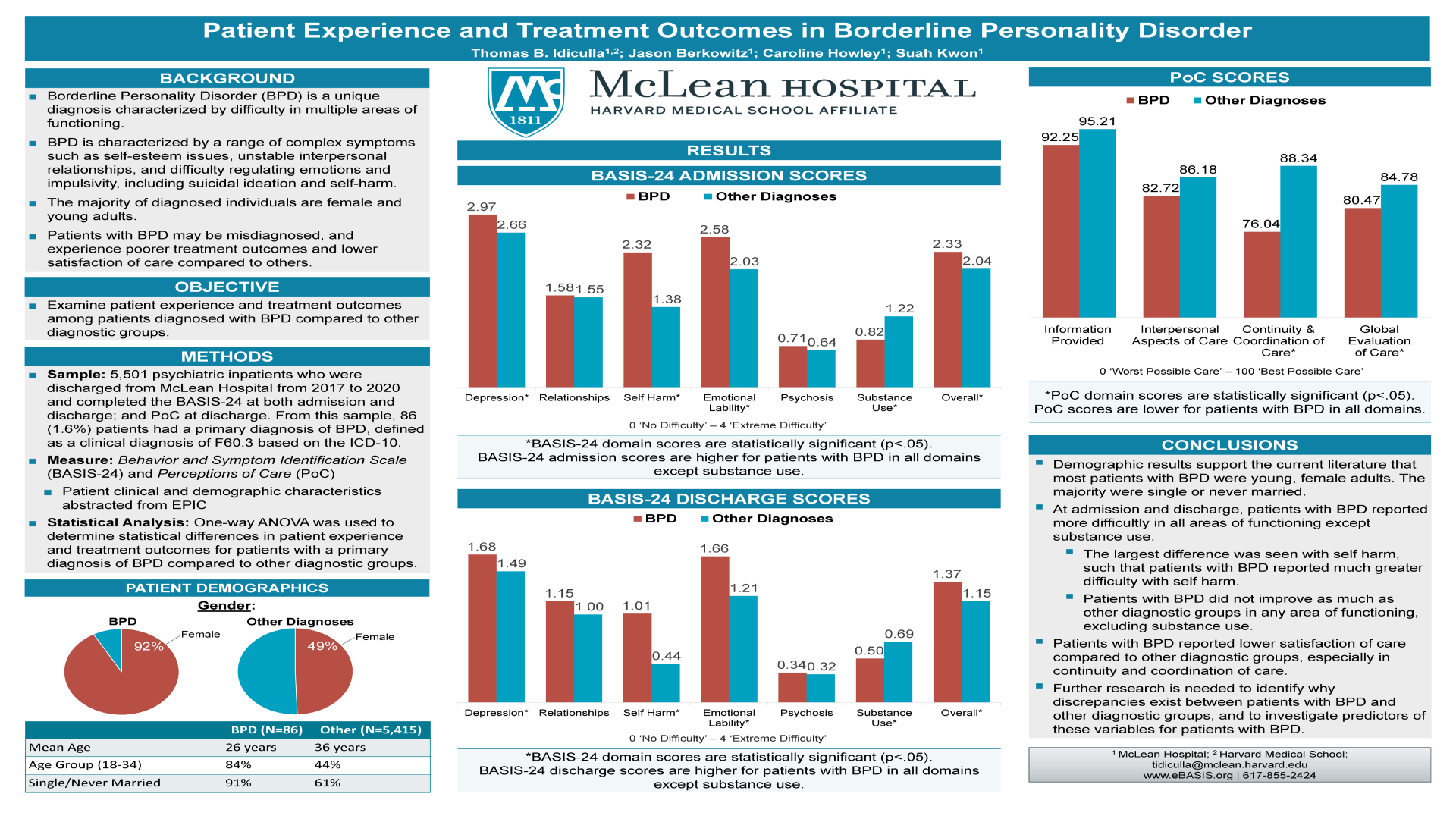Scientific Abstract
Background: Borderline Personality Disorder (BPD) is one of the most misdiagnosed disorders, and existing research found that patients with BPD have lower treatment satisfaction and poorer treatment outcomes compared to patients of other diagnostic groups. Individuals diagnosed with BPD are also overwhelmingly female and young adults. The purpose of this study is to examine the patient experience and treatment outcomes among patients with BPD using Perceptions of Care (PoC) and Behavior and Symptom Identification Scale (BASIS-24).
Methods: The study includes 5,501 psychiatric inpatients discharged from McLean Hospital between 2017 and 2020 and completed the BASIS-24 at both admission and discharge; and PoC at discharge. Within the sample, 86 patients were clinically diagnosed with BPD, classified as a primary diagnosis of F60.3 based on the ICD-10. Patient clinical and demographic data were extracted from EPIC. One-way ANOVA was used to examine patient experience and treatment outcomes between patients with a primary diagnosis of BPD compared to other diagnostic groups.
Results: Of all patients with BPD, 92% were female, 84% were between 18-34 years old (M=26 years), and 91% were single or never married. Patients with BPD had significantly greater difficulty (p<0.05) in all BASIS-24 domains except substance abuse at both admission and discharge compared to patients with other diagnoses. Significant differences in patient satisfaction were also found, with significantly lower PoC scores (p<0.05) for patients with BPD in Continuity/Coordination of Care and Global Evaluation of Care compared to patients with other diagnoses.
Conclusions: Patients with BPD did improve during treatment, however not as much as other diagnostic groups. The largest difference in domain scores was seen with self-harm, such that patients with BPD reported much greater difficulty with self-harm. Patients with BPD revealed lower satisfaction of care, particularly relating to the continuity/coordination of care and global evaluation of care. Future research will focus on identifying patients with BPD using the BASIS-24.
Search posters

